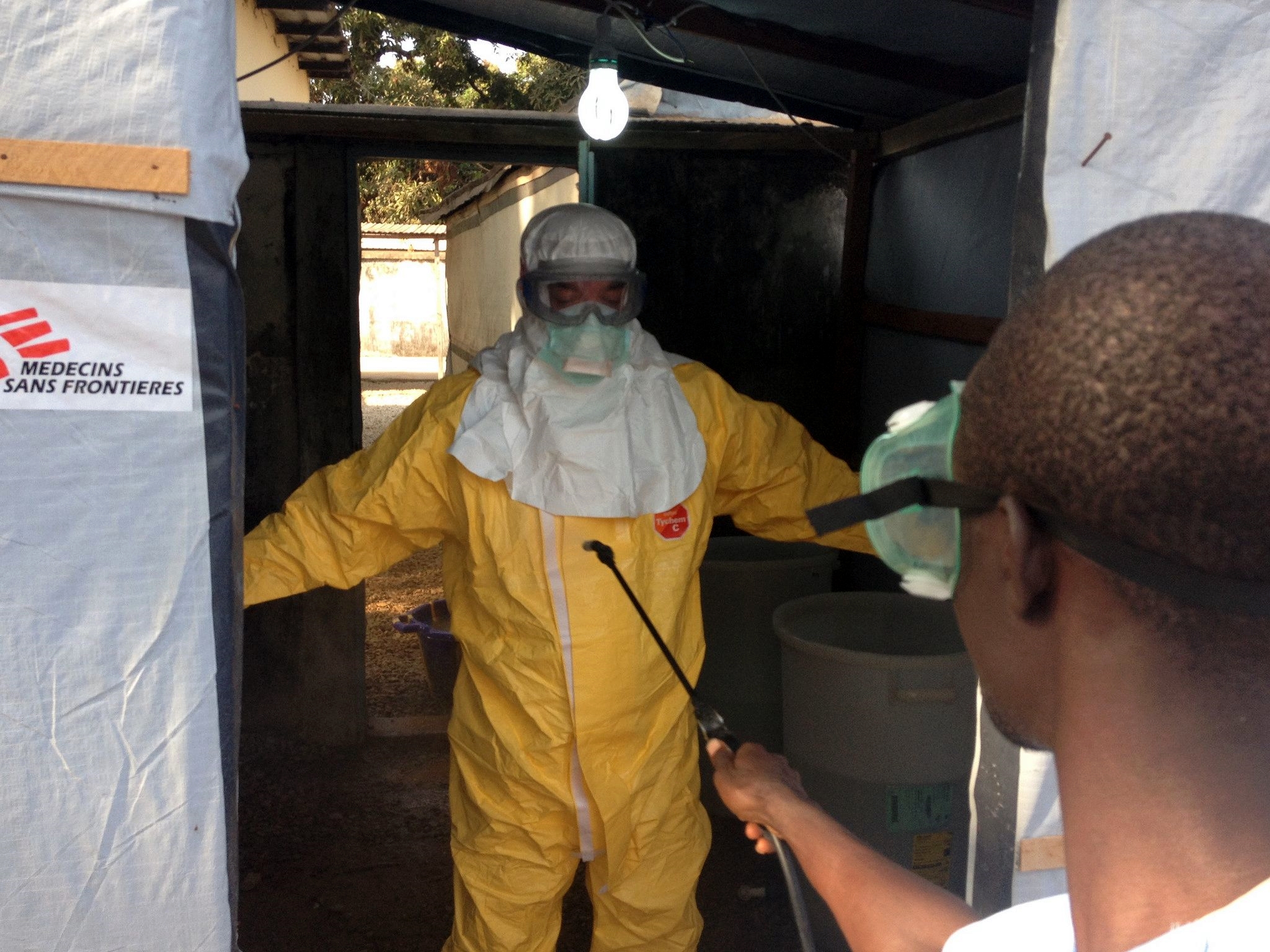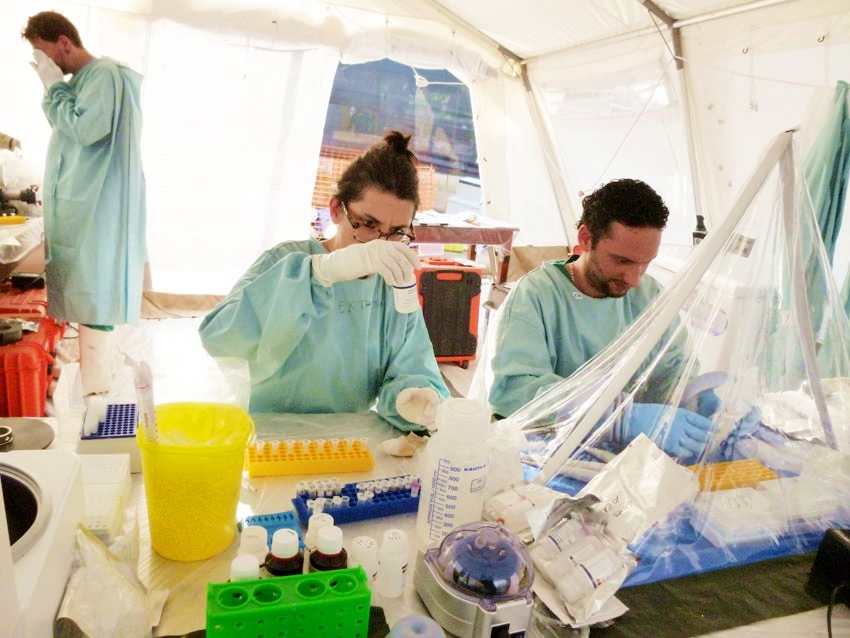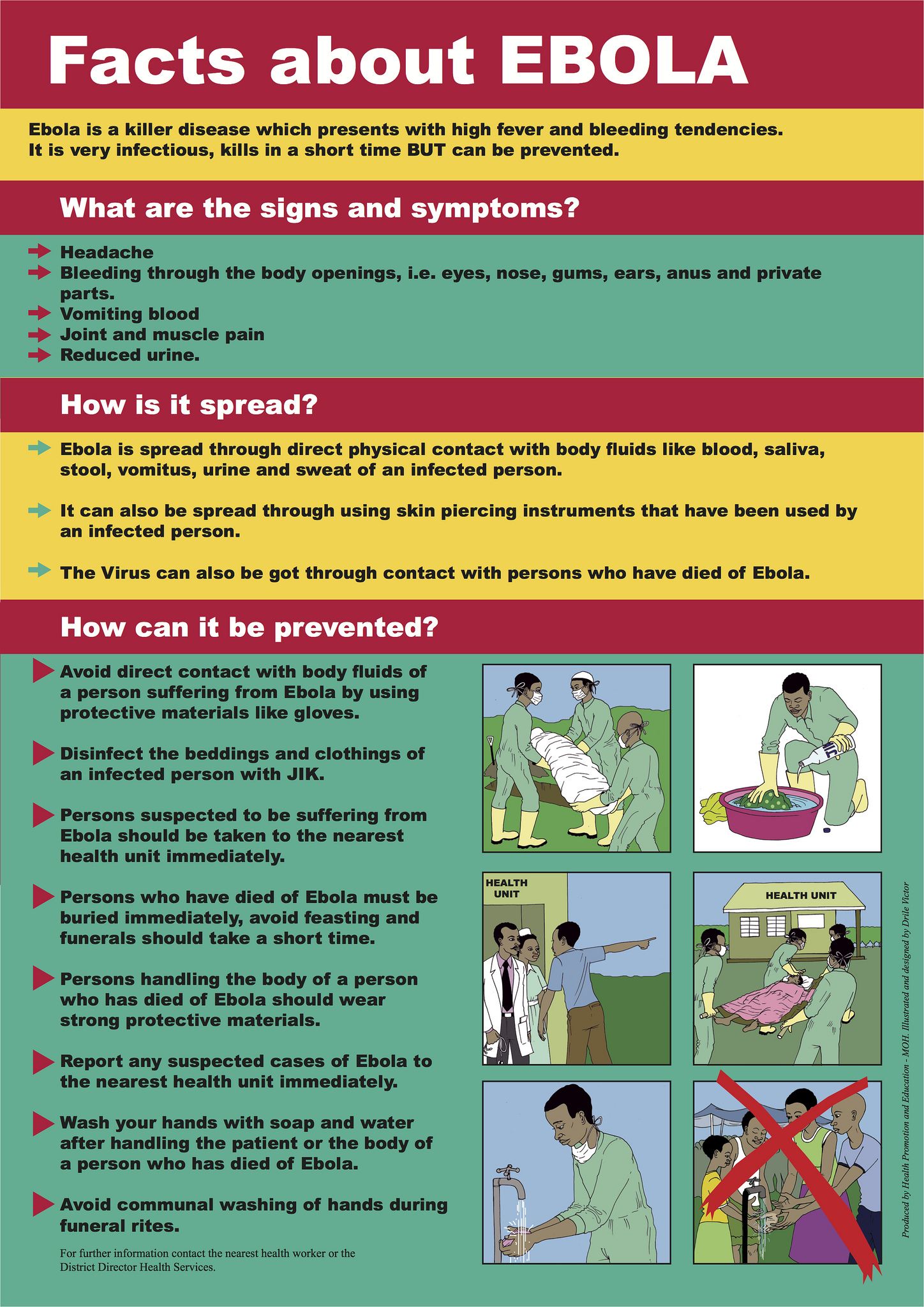Since running its course in 1976 after its first known outbreak in Africa, the Ebola virus has been recognized in 1,779 cases this year, with health workers seeing a 90 percent fatality rate in West Africa.
The deadly disease, marked by painful symptoms and hemorrhagic fever, has taken the lives of 1,600 since March, according to The Times of Israel.
The New York Times reports that Patient Zero was a 2-year-old, whose death on December 6 was not diagnosed until March.
Going unchecked for three months in a border town of Guinea, the Ebola virus killed the child’s sister, mother, and grandmother and moved across the border into Sierra Leone and Liberia, devastating entire villages, and has penetrated certain towns in Nigeria. (ABC)
“Villagers are fleeing as if it were a civil war, which increases the spread of Ebola,” said Eyal Reinich, an Israeli with Doctors Without Borders. “They disappear into jungles and other places and become vagrants. So we’re constantly finding the virus in places we didn’t know about.” (Haaretz)

MSF (Médecins Sans Frontières/Doctors Without Borders) health staff in protective clothing are sprayed down with a disinfectant when exiting the isolation ward.
Reinich said he has seen Ebola outbreaks four times—three in Guinea—and that “the current outbreak is the worst.”
“The fear in the street is terrible,” Reinich said. “If an epileptic person falls, everyone reacts hysterically and nobody helps him.”
Another Israeli, United States-born virologist and physician Leslie Lobel, has focused his last 12 years studying Ebola, traveling four times a year to Uganda to study the genetic makeup and immune responses of rare Ebola survivors.
Lobel, in partnership with his co-principal investigator Dr. Victoria Yavelsky and the United States military and the Uganda Virus Research Institute is currently developing a vaccine for Ebola that would make humans immune to the virus.
Lobel earned his MD and doctorate in virology at the College of Physicians and Surgeons of Columbia University in New York and has served as faculty at Ben-Gurion University’s Department of Microbiology, Immunology and Genetics, since making aliyah with his family in 2002, during the Second Intifada.
“I figured that I should first focus on a serious virus—and Ebola is a very serious disease, lacking a cure and fatal in the majority of cases. It is also a biodefense threat. I thought human antibodies could be very useful for treating this viral disease,” Lobel said. (JPost)

While the World Health Organization (WHO) works to contain outbreaks, they do not fund research to develop therapeutics. This European Mobile Lab unit helps with Ebola diagnoses. (Photo credit: EMLab)
The origin of the virus is still unknown, but the first symptoms are similar to the flu— “headache, muscle pains and fever, but they can quickly develop into diarrhea, vomiting and bleeding from the mucous membranes and then under the skin, which can rapidly result in death,” Lobel explains.
While containment of the virus has not been achieved in West Africa, Lobel says “there is general hysteria in the West about it, but it is overblown.”
The Center for Disease Control states that Ebola is transmitted through direct contact with the blood or secretions of an infected person and exposure to objects (such as needles) that have been contaminated with infected secretions.










